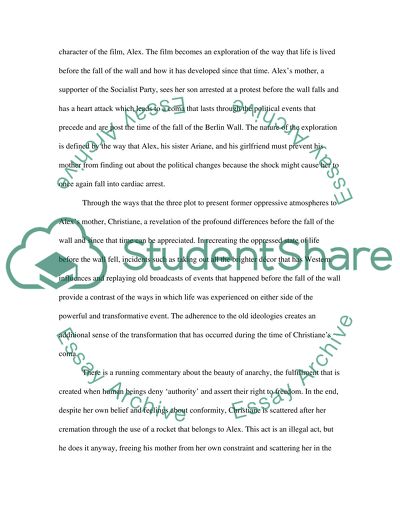Cite this document
(“Compare and contrast Goodbye Lenin (Wolfgang Becker, 2003) and La Essay”, n.d.)
Retrieved from https://studentshare.org/environmental-studies/1418513-compare-and-contrast-goodbye-lenin-wolfgang-becker
Retrieved from https://studentshare.org/environmental-studies/1418513-compare-and-contrast-goodbye-lenin-wolfgang-becker
(Compare and Contrast Goodbye Lenin (Wolfgang Becker, 2003) and La Essay)
https://studentshare.org/environmental-studies/1418513-compare-and-contrast-goodbye-lenin-wolfgang-becker.
https://studentshare.org/environmental-studies/1418513-compare-and-contrast-goodbye-lenin-wolfgang-becker.
“Compare and Contrast Goodbye Lenin (Wolfgang Becker, 2003) and La Essay”, n.d. https://studentshare.org/environmental-studies/1418513-compare-and-contrast-goodbye-lenin-wolfgang-becker.


